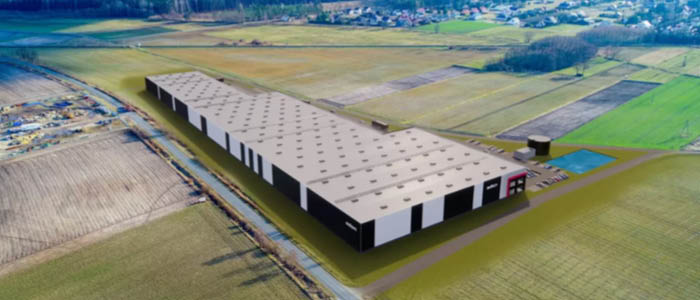Unlike those of its neighbours to the East, Austria’s economy was allowed to operate free of communist interference, allowing the country to hit well above its weight, comparatively-speaking. Thus, although Austria is the 11th biggest country in CEE in population, with 8.7 million people, it has the third largest economy, behind only Russia and Poland. And these days, with the global financial crisis now firmly in the rearview mirror, the country is once again able to capitalize on its happy geographical positioning and historical relationship with the former members of the Austro-Hungarian empire.
Unsurprisingly, then, the Austrian lawyers we sat down with recently to discuss the country’s economy and outlook were enthusiastic about the country’s status, describing it as a stable, essentially unproblematic market, where booming real estate, state support for technological innovation, and significant deals in the automotive and software developments sectors are thriving. Austria, it appears, is in the sweet spot.
The Strengths of the Market
The experts we spoke with were unanimous in their enthusiasm for Austria’s outlook at the moment. According to Schoenherr Partner Alexander Popp, much of the country’s good fortune comes from its fortuitous position in the geographical center of the continent. “Austria is a good place to do business and one important aspect is its location within Central Europe,” says Popp, who serves as regional coordinator of Schoenherr’s M&A team “It is a good platform – a good gateway. If people from Italy want to do business in Eastern Europe, they first come to Vienna, and then travel to Eastern European cities. Its favorable location is visible in regards to the real estate market as well: everyone wants to buy here and there are a lot of transactions going on.”
And investors from outside Europe increasingly see Austria as providing a hub and toe-hold for their European strategies. Just two years ago, the Bank of China– one of China’s four largest commercial banks – opened a new branch in Vienna’s center, and high-end train supply equipment manufacturer CRRC ZELC established its first European subsidiary in Vienna. Popp does not expect it to stop there. “Although Chinese investors are primarily looking to Western Europe, their presence is continuously growing in Central and Eastern Europe as well, especially in the technology sector and automotive industry.
Horst Ebhardt, who heads Wolf Theiss’ M&A team, thinks that foreign investors are attracted to the Austrian market because of its advanced technology as well. He comments approvingly on the state support for tech start-ups and innovation, and on the number of teams coming from universities opening up their own companies,. “The country is recognized as a technology hub, small and medium-sized companies are particularly successful on the high-tech market, often globally,” he says. In addition, “we have an educated workforce.”
Dorda Partner Martin Brodey agrees. “The government has recognized that there is a lot of brain power coming out of the universities, and if they don’t feel supported by it at the right moment, and they can’t get active here, they would move elsewhere.”
Thus, according to Brodey, “we have the impression that the productivity gap between Austria and Germany is closing again. For a long time, Germany has been like an economic engine for us in terms of business, commerce, and transactions.”
Ever Better
The experts we spoke with pointed to the recent improvements in the country’s banking system as key factors as well. “If we look back five years, we can say that the banks are doing much better today,” reports Ebhardt. “They have cleaned their balance sheets, and their capital ratios are better. There is a certain level of comfort from corporate clients as well. It has become easier again to secure debt financing– it is affordable. Retail customers have become valuable again and loan portfolios have regained value in the books. And, on the back of a booming economy, banks do not have to be as worried about people paying back their mortgages.”
Real estate is moving at a good level too, says Willibald Plesser, Senior Partner at Freshfields Austria, although in this case it’s a function of slowing down, not heating up. “There was a time when lots of Russians started to invest in the market and also to buy up private apartments for very high prices – a trend that happened in London as well. Prices went up unjustifiably back then, but today things are back to normal, and especially commercial real estate is again considered cheap.”
In addition, while capital markets have been quiet in Austria for several years, there are signs that this is about to change. “In respect to Vienna, it was clearly a trend in the past period for investors to prefer Warsaw, Istanbul, or even London, says Plesser. “But now in some sectors people are again paying attention to the stock exchange.” Plesser points to last October’s listing on the Vienna Stock Exchange by the BAWAG Group, which had a total offer volume of approximately EUR 1.9 billion, making it the largest IPO ever on the VSE – and the first significant listing in more than three years. “And there are more IPOs in the pipeline,” he says. “The market is definitely picking up, and people are starting to believe that you can actually make more money from an IPO than from the trade sale.”
Plesser points to the planned reform of the way foundations are used in Austria as another potentially growing source of business for law firms. “In Austria,” he says, “foundations are often used to hold family businesses, which are sometimes true ‘hidden champions.’ While the founder as long as he is alive usually exercises factual control over the company, this changes when he dies and an independent board – with no or little control rights by the beneficiaries – leads the business. This structure often immobilizes the company as the board sometimes does not feel entitled to (or does not want to) sell or restructure the company.” According to him, “Now a reform is debated which, for instance, would give more rights to the beneficiaries of the foundations, or even create a separate structure for foundations holding companies. This could cause a wave of ownership changes at those companies, which right now are frozen.” Plesser concludes, “changing their stagnant state could attract new investors to the market. These companies could be sold, or restructured, but in any way new opportunities could be opened up for hundreds of companies in the country.”
Every Rose Has Its Thorn
Of course, nobody claims everything is perfect. “As lawyers, we should also mention the hurdles,” Alexander Popp says. “Austria has three main issues at the moment: Education, the social security system, and the distribution of powers among the federal state and the provinces of Austria. The last of these undoubtedly brings a lot of bureaucracy, and as a result, things move more slowly and inefficiently.”
Popp elaborates. “Let’s just consider nature conservation. We have different nature conservation laws for each of the nine Austrian states. Having advised on transactions involving wind parks, I am aware that a bird flying from the east to the west of Austria is protected by around six different laws – and you need to consider which ones apply to you depending on the province you’re dealing with. This is a form of over-regulation for a rather small country like Austria, which makes business complicated for foreign investors,” he explains.
Otherwise, however, the legal experts we spoke to had trouble identifying many flies in the Austrian ointment.
The Legal Market and Its Fees
One of the consequences of a strong economy and a vibrant legal market is that concerns about fee pressures are, happily, muted. Indeed, according to Willibald Plesser, while in countries like the Czech Republic firms are forced occasionally to accept rates as low as EUR 90 an hour, Austrian firms regularly agree on rates of EUR 300 plus. “Legal activities and services are still moving on a varied scale [across CEE], and to tell the truth, we still don’t see them equalizing, or coming closer to each other,” he says. “The markets in Europe and Eastern Europe are somewhat different. For a long time now, a lot of firms in Eastern Europe have seen a split market. They have their international clients with higher rates and their local ones with lower rates, with their focus primarily on international clients. Now, with less foreign investment, they had to shift their attention to the local markets because they still want to fill their desk with work. Some local markets however are terrible – Turkey is a good example for this. So firms had to bring down prices, or adjust them to the local level.” He pauses. “As far as I am aware, we have never had such a split market in Austria.”
While hourly rates in the country are staying stable, Martin Brodey reports that clients are nonetheless increasingly seeking alternative fee structures. “It’s more in the direction of having flat fees in certain sectors, in the form of caps, or even fixed fees for the entire projects,” he explains. “Clients are simply more conscious about not to get into something they can’t finance.” Brodey emphasize that he and his colleagues accept these requests as reasonable, but he rolls his eyes at those who make price the only factor in their calculation. “For law firms it is important to operate with clients that take legal services seriously and are not just considering the financial side of a project.”
Horst Ebhardt agrees that there is indeed more discussion now about fees and prices than before, but reported that clients are also demanding closer accounting and justification. “I would say that this has to do with cost control and clients applying greater scrutiny to their legal budgets. The basics have not changed – but there is a more open and frank dialogue and clients want to be up to speed on their legal spend at all times. We think this is a positive development.”
Enjoying the Ride
Ultimately, there’s little debate that Austria’s in a good place at the moment, with a stable political situation, a growing economy, a competitive and balanced legal market, and a fortuitous geographic position in the center of Europe. According to Dorda Partner Martin Brodey, “progress is visible in many areas, we have a performance-oriented government, and we are under the impression that the productivity gap between Austria and Germany is closing again,” he smiles. “The market is steady, it’s the best time for law.”
By Alexander Popp, Partner, Schoenherr, Horst Ebhardt, Partner, Wolf Theiss, Martin Brodey, Managing Partner, Dorda, Willibald Plesser, Partner, Freshfields Bruckhaus Deringer
This Article was originally published in Issue 5.3 of the CEE Legal Matters Magazine. If you would like to receive a hard copy of the magazine, you can subscribe here.





























